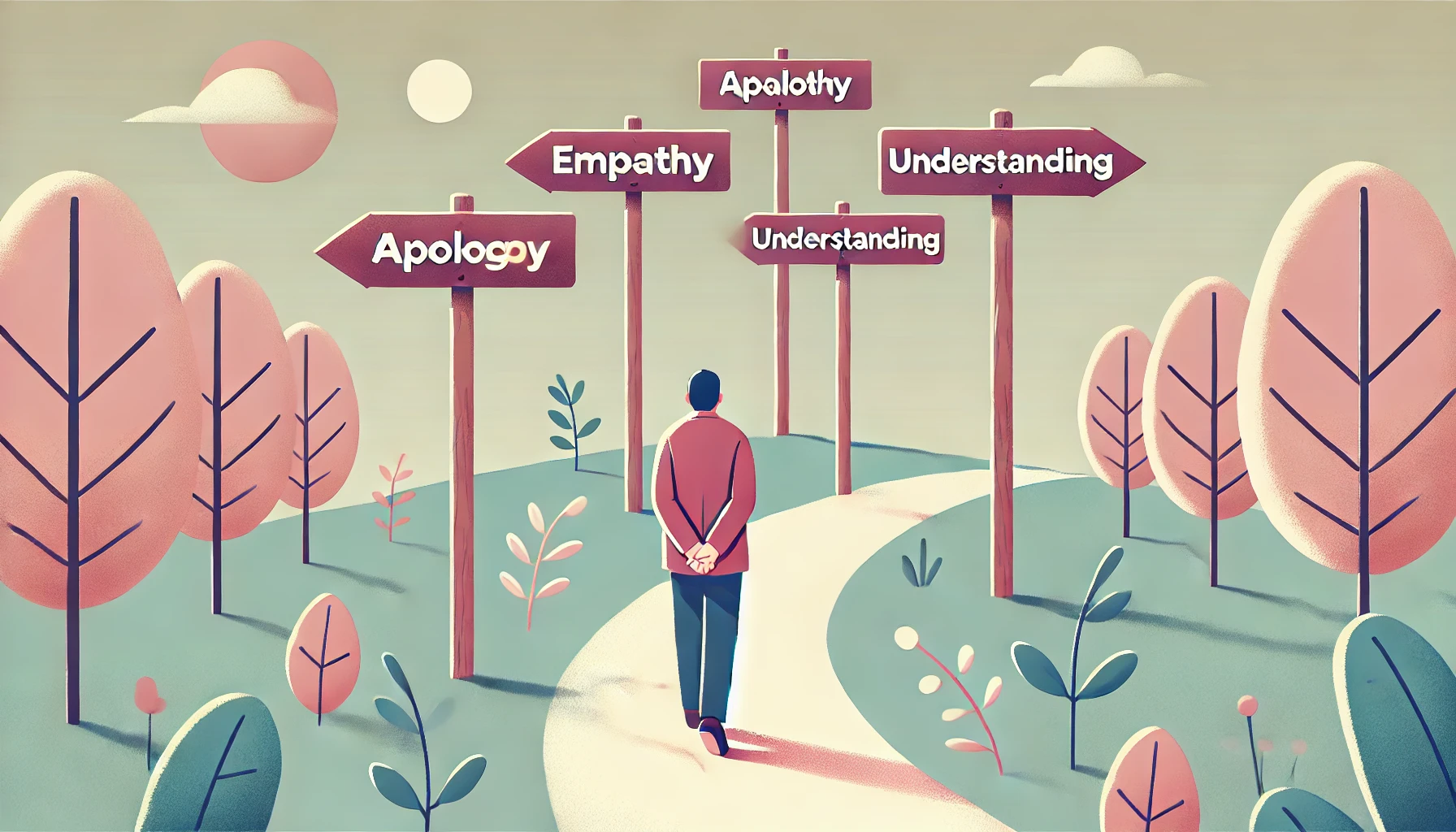In the journey towards inner peace, the practices of apology and forgiveness play pivotal roles. Param Gurudev, in his discourse on Samvatsari and Paryushan, elucidates these concepts with profound clarity and simplicity. Understanding and embracing these practices can transform not only our inner world but also our relationships and interactions with others.
The Spiritual Significance of Forgiveness
Forgiveness, according to Gurudev, is not just a social or moral obligation but a spiritual practice that cleanses the soul. He explains that holding onto grudges and resentment clouds our mental clarity and hinders our spiritual growth. When we forgive, we release this negative energy, making space for peace and tranquillity.
Forgiveness is an act of self-liberation. It frees us from the burden of negative emotions, allowing us to experience mental and emotional clarity. By letting go of resentment, we open ourselves to a higher state of consciousness, where we can experience true joy and contentment. This spiritual perspective on forgiveness highlights its importance in achieving inner peace.
The Courage and Wisdom in Apologising

Gurudev emphasises the importance of humility in seeking forgiveness. Apologising sincerely is an act of courage and wisdom. It requires us to acknowledge our mistakes and express genuine remorse. This process not only heals relationships but also purifies our heart and mind. Apologies, when made with a pure heart, can mend even the deepest of wounds.
Sincere apologies are powerful. They demonstrate our willingness to take responsibility for our actions and our commitment to making things right. This act of humility can significantly enhance our relationships, fostering an environment of trust and mutual respect. Gurudev’s teachings encourage us to embrace this vulnerability as a strength.
Techniques for Inner Reflection
One of the key aspects Gurudev highlights is the technique of inner reflection. This involves meditating on our actions and their impact on others. Through this introspection, we become more aware of our shortcomings and more empathetic towards others. Meditation, as he points out, is a powerful tool for achieving mental peace and clarity.
Inner reflection allows us to examine our behaviour and understand the consequences of our actions. By regularly practising meditation, we can cultivate a deeper awareness of our thoughts and feelings. This heightened self-awareness is essential for personal growth and spiritual development. It helps us to identify areas where we need to improve and make amends.
Cultivating a Forgiving Mindset

To cultivate a forgiving mindset, Gurudev suggests practising empathy and understanding. He advises us to put ourselves in others’ shoes and view situations from their perspective. This shift in viewpoint can dissolve many misunderstandings and pave the way for reconciliation.
Empathy is a cornerstone of forgiveness. By understanding the experiences and emotions of others, we can develop compassion and kindness. This empathetic approach can transform our interactions, making it easier to forgive and move forward. Gurudev’s teachings encourage us to nurture this mindset, as it is fundamental to building harmonious relationships.
Practical Steps for Seeking Forgiveness

In his discourse, Gurudev provides practical steps for asking for forgiveness. These include approaching the person we have wronged with sincerity, expressing our remorse clearly, and making amends wherever possible. He stresses the importance of open communication in resolving conflicts and building stronger relationships.
Effective communication is key to successful apologies. It involves being honest about our mistakes, listening to the other person’s perspective, and working together to find a resolution. Gurudev’s guidance on this process is invaluable for anyone seeking to repair damaged relationships and foster mutual understanding.
The Spiritual Benefits of Forgiveness
The spiritual benefits of forgiveness are immense. Gurudev explains that forgiveness liberates us from the burden of anger and hatred, allowing us to experience joy and contentment. It strengthens our connection with the divine and enhances our overall well-being.
Forgiveness is a transformative practice that can elevate our spiritual journey. By releasing negative emotions, we create space for positive energy and spiritual growth. This practice helps us to align with our higher self and connect with the divine. Gurudev’s insights highlight the profound impact of forgiveness on our spiritual path.
Building Resilient Relationships

Gurudev’s teachings remind us that forgiveness is not a sign of weakness but a testament to our inner strength. It reflects our capacity to rise above petty conflicts and embrace a higher state of consciousness. By practising forgiveness, we can build resilient relationships that withstand challenges and foster mutual respect.
Resilient relationships are built on trust, understanding, and forgiveness. These relationships provide a strong foundation for personal and spiritual growth. Gurudev’s discourse encourages us to nurture these connections by practising forgiveness and empathy.
The Role of Forgiveness in Mental Health
Forgiveness also plays a critical role in mental health. Holding onto grudges and anger can lead to stress, anxiety, and depression. Gurudev’s teachings suggest that by practising forgiveness, we can alleviate these negative emotions and improve our mental health. This, in turn, enhances our overall quality of life.
Mental health professionals often emphasise the importance of forgiveness in therapy and counselling. It helps individuals to let go of past traumas and move forward with a positive outlook. Gurudev’s insights align with these modern psychological practices, demonstrating the timeless relevance of his teachings.
The Connection Between Forgiveness and Physical Health
Interestingly, forgiveness is also linked to physical health. Studies have shown that forgiving individuals tend to have lower blood pressure, reduced risk of heart disease, and better immune function. Gurudev’s teachings on forgiveness, therefore, have implications beyond the spiritual and emotional realms, extending into physical well-being.
By letting go of anger and resentment, we reduce the physiological stress response in our bodies. This promotes better health and longevity. Gurudev’s holistic approach to forgiveness underscores the interconnectedness of our mind, body, and spirit.
Practical Tips for Daily Forgiveness Practice

Incorporating forgiveness into our daily lives can be challenging, but Gurudev offers practical tips to make this practice more manageable. He suggests starting with small acts of forgiveness, such as letting go of minor irritations and daily annoyances. Gradually, this practice can be expanded to more significant issues.
Daily journaling can also be an effective tool for practising forgiveness. By writing down our thoughts and feelings, we can gain clarity and perspective on our emotions. Gurudev encourages this practice as a means of self-reflection and emotional release.
Encouraging Forgiveness in Community and Society
Forgiveness should not only be practised individually but also encouraged within our communities and society at large. Gurudev advocates for creating a culture of forgiveness, where individuals feel supported and motivated to resolve conflicts and misunderstandings.
Communities that embrace forgiveness tend to be more cohesive and harmonious. By promoting forgiveness at a societal level, we can contribute to a more peaceful and compassionate world. Gurudev’s vision of a forgiving society is one where love, understanding, and mutual respect prevail.
Conclusion
Param Gurudev’s insights on apology and forgiveness provide a clear pathway to inner peace and harmony. By practising these virtues, we can cleanse our souls, heal our relationships, and achieve a state of true contentment. Let us embrace these teachings and cultivate a life of compassion, understanding, and spiritual growth.
Forgiveness and apology are not just actions but profound spiritual practices that can transform our lives. Gurudev’s wisdom offers a roadmap for anyone seeking to enhance their mental and emotional well-being. By incorporating these teachings into our daily lives, we can experience the true essence of inner peace and spiritual fulfilment.





